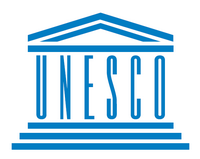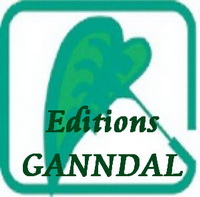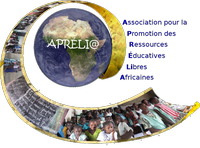Resources
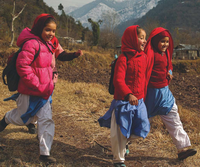 Source : UNESCO
Source : UNESCO
Introduction
The COVID-19 pandemic has caused the largest disruption of education in history. Most governments around the world have temporarily closed schools and other learning spaces in recent months in an attempt to contain the spread of the virus. At the peak of the pandemic in April 2020, these nationwide closures impacted more than 1.5 billion students, or over 90% of the world’s student population, from pre-primary to higher education in 200 countries.
This unprecedented disruption to education has the potential to roll back substantial gains made on girls’ education in recent decades, with broader immediate and longer-term effects on the achievement of the Sustainable Development Goals, including those related to poverty reduction, health and well-being, inclusive quality education and gender equality. The most marginalised, including girls with disabilities, those in conflict-affected contexts, remote and rural communities and those in the poorest quintile, are expected to be most affected by COVID-related school closures, facing additional constraints on their ability to fulfil their right to education, health and protection, among other rights.
- Détails
- Écrit par : G. Puiségur
- Catégorie : Inclusive Education
- Clics : 1636
Lire la suite : Building back equal: girls back to school guide
The year 2019 celebrated the 25th anniversary of the World Conference on Special Needs in Education, held in Salamanca, Spain. At the conference, representatives of 92 governments and 25 international organizations adopted a Framework for Action that called on schools to welcome all children, regardless of their physical, intellectual, social, emotional, linguistic or other characteristics.
The principles elaborated in Salamanca have set the foundation for understanding the importance of inclusion in education. Since then, the concept of inclusion has broadened, emphasizing the need to reach all learners, on the assumption that every learner matters equally and has the right to receive relevant, quality, equitable and effective educational opportunities.
- Détails
- Écrit par : G. Puiségur
- Catégorie : Inclusive Education
- Clics : 1692
Lire la suite : Towards inclusion in education: Status, trends and challenges
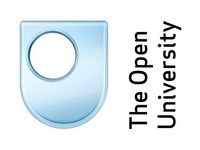 Source : Open University, article by Wolfenden, Freda; Buckler, Alison and Keraro, Fred (2012), Journal of Interactive Media in Education p. 16
Source : Open University, article by Wolfenden, Freda; Buckler, Alison and Keraro, Fred (2012), Journal of Interactive Media in Education p. 16
Abstract
Over a period of three years a number of International and African based institutions collaborated to design and create a set of Open Educational Resources to support school based teacher education as part of the TESSA project. Writing of the materials drew on case studies, experiences and existing resources from across the region using a highly structured template. These TESSA OER were then adapted to be appropriate for each user setting and practices. It is this process - supporting the user community to harness and integrate OERs for their own systems and cultures, which is the focus of this article. The authors draw on a range of data to make explicit the kinds of knowledge, skills and support employed in the adaptation process and in particular the role of the structured template in supporting this process, and the problems encountered. The article suggests that OERs will only fulfil their promise if more attention is accorded to issues of user access and skills as well as the form of the OERs, their purpose and underlying pedagogy. Finally the paper offers suggestions for guidance to support other users in adapting OERs for their own context whilst maintaining the quality of the OERs and working towards self-sustaining communities of users.
Download (pdf, 20 pages, 822 Ko)
- Détails
- Écrit par : G. Puiségur
- Catégorie : Resources
- Clics : 951
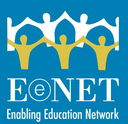 Source : EENET (Enabling Education Network)
Source : EENET (Enabling Education Network)
Through EENET’s partnership with Norwegian Association of Disabled, and working with partners in Zambia and Zanzibar, they have just published a set of 34 fun learning activities that children with and without disabilities and their families can do at home, any time.
The home learning activities can be downloaded as a complete package in PDF format, in English, Kiswahili, Nyanja and Tonga.
There is also an online activity search to help you and your children choose activities. You can select indoor or outdoor activities. You can choose whether or not you want activities that use pens and paper or other local material. And you can choose which age group the activity is suitable for and whether the child will need a lot or a little help from an adult or older sibling.
Each activity contains instructions, an indication of which age group it is suitable for and how much assistance the child may need, a summary of what the child will learn and practice during the activity, and suggestions for different ways to do the activity to suit different needs and abilities.
If you are thinking that home learning will soon be unnecessary as schools start to re-open following Covid-19 related closures, we invite you to read EENET's brief reflections on inclusive home learning – during and after Covid-19 and a longer blog on this topic.
The latest collection of home learning activities complements the home learning poster that was published recently.
Inclusive home learning – poster
- Détails
- Écrit par : G. Puiségur
- Catégorie : Families
- Clics : 921
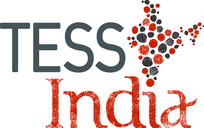 Source : TESS-India (Teacher Education through School-based Support)
Source : TESS-India (Teacher Education through School-based Support)
This is a six-week, task-oriented MOOC that focuses on how to select, evaluate and use Open Educational Resources (OER) to help support quality in teacher education. Teacher development is a highly complex process and there are many different ideas about the best way to prepare and support quality teachers.
This course is part of a collection of courses called TESS-India, so you may find other courses here that maybe of interest to you. The TESS-India model of school leadership and management further engages school leaders, teacher educators and state administrators in understanding and applying effective management strategies, such as school self-review, improvement planning, assessment and defining school culture.
Freely available to all, TESS-India’s comprehensive toolkit of 191 Open Educational Resources (OER) equips teachers with the knowledge to actively engage their students in meaningful learning. The toolkit comprises of 105 teacher development units, 20 school leadership units, 10 principles of practice, 55 videos of authentic classroom teaching and a compendium offering sample teaching learning pathways through the OER.
Resources can be selected, sequenced and adapted flexibly, according to your needs and priorities.
- Détails
- Écrit par : G. Puiségur
- Catégorie : Distance learning
- Clics : 995
Lire la suite : TESS-India: Enhancing teacher education through OER MOOC
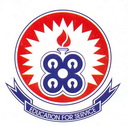 by Habineza Faustin
by Habineza Faustin
Source : TESSA
Abstract
This study was conducted in the University of Education, Winneba. It involved three teacher educators and 21 prospective early childhood teachers six of whom were randomly sampled and engaged during a peer teaching session using a proposed model christened the Collaborative peer teaching model. The study aimed at obtaining from the experiences of prospective teachers how the model promotes effective teaching and learning of literacy and numeracy. Triangulated data from interviews, reflective journals and views from reflective sessions were analyzed using the interpretive approach. Responses from the three classes of participants suggested among others that the model was supportive of students teaching, engendered reflection on teachings, challenged the prospective teacher and improved prospective teachers disposition to adopt best practices in the teaching of numeracy and literacy. Based on the findings recommendations were made for the adoption of the model by teacher educational universities, colleges of education and other educational entities.
Key words: Collaborative model, Peer teaching, Prospective teachers and Model teaching.
- Détails
- Écrit par : G. Puiségur
- Catégorie : Resource persons
- Clics : 870
 Source : TESSA
Source : TESSA
Thesis by Eric Addae-Kyeremeh BA (Hons) MA MEd, The Open University Centre for Research in Education and Educational Technology, Doctorate in Education (Leadership and Management) :
Professional development spaces- An exploratory study of headteachers perspectives in Ghana (Abstract, see below)
Sub-theme: Total Teacher Professional Development
Abstract
Leadership learning is a fascinating area of research and for that matter headteachers learning and development. Headteachers in Ghana like many other countries spend their daily duties focussing on the learning of others with little attention to their own learning and development and the potential benefits for them and their school as a whole. In the last decade or so, Ghana has invested in the training and development of basic school teachers (including headteachers) through state resources and financial resources secured from DFID and other multi-national organisations (Education Sector Performance Report, 2013). These funds have been disbursed to municipal and district directorates through the decentralisation programme by the Ghana Education Service yet little is known about the impact of professional development activities.
- Détails
- Écrit par : G. Puiségur
- Catégorie : School leaders
- Clics : 1032
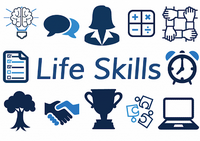 Source : TESSA
Source : TESSA
Section 1 Ways to explore who pupils are
Key Focus
Question: How can you help pupils explore who they are in ways that are sensitive and stimulating?
Learning outcomes
By the end of this section, you will have:
- developed your skills in organising the class in ways that will help pupils show respect for each other;
- developed your skills in asking questions to encourage thinking;
- used different ways to gather data to help pupils discuss who they are.
Introduction
We all learn best when we feel comfortable and safe. As a teacher, one of your key roles is to develop a supportive classroom environment where everyone is able to participate fully and feels they are respected and their ideas are listened to.
This section explores how to do this by looking at different ways of organising the class. You will help pupils learn how to treat each other with respect by:
- helping them understand their similarities and differences;
- asking them to share opinions and feelings;
- giving them tasks where they can ask each other questions and listen to the answers.
- Détails
- Écrit par : G. Puiségur
- Catégorie : Teachers
- Clics : 840
Lire la suite : Life skills : Personal development – how self-esteem impacts on learning
 Source : EENET (Enabling Education Network)
Source : EENET (Enabling Education Network)
This resource offers an alternative and engaging format for basic training to help teachers become more learner-centred and inclusive.
“An Inclusive Day: Building foundations for learner-centred, inclusive education” contains 10 short videos and manuals. The videos show some of ways in which learners can be included or excluded during the course of a typical school day. The training package can be used by trainers as part of a training course for teachers and other educators, or it can be used by individual teachers as a self-study video.
A brief introduction to this video resource is available in a PowerPoint presentation (7MB).
The videos and training manuals are available under the Creative Commons License Attribution-NonCommercial-ShareAlike 4.0 International.
- Détails
- Écrit par : G. Puiségur
- Catégorie : Inclusive Education
- Clics : 817
 Source : EENET (Enabling Education Network)
Source : EENET (Enabling Education Network)
EENET has made 2 training videos and manuals focusing on inclusive early childhood education. These 2 new videos aim at looking at:
- Inclusive teaching and learning in early childhood education settings;
- Inclusive transition to, from and within early childhood education.
The Inclusive Beginnings package contains:
✔️ Introduction booklet
✔️ Inclusive practice - video and training manual
✔️ Inclusive transition - video and training manual
✔️ Advocacy booklet (coming soon)
You can watch the videos and download the manuals here
- Détails
- Écrit par : G. Puiségur
- Catégorie : Inclusive Education
- Clics : 793
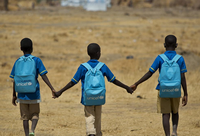 Source : UNICEF
Source : UNICEF
UNICEF and its partners are driving an innovative solution called Accessible Digital Textbooks for All, to make textbooks available, affordable and accessible for children with disabilities in all contexts. We cherish the printed word, but it isn’t always accessible to everyone. Children with disabilities remain one of the most marginalized and excluded groups and, for them, gaining access to quality education can often be challenging. By adding specific features to digital formats and following Universal Design for Learning principles, textbooks can be made accessible to students who are blind or have low vision, to those who are deaf or hard of hearing, and to those who have intellectual, developmental or learning disabilities, among others. And it doesn’t stop there: these features can enrich the learning experience for all children.
The initiative brings writers, publishers, teachers, organizations of persons with disabilities, technologists and ministry of education representatives together to develop the guidelines needed to produce textbooks in accessible digital formats. They jointly set standards for features like narration, sign language, interactivity and the audio description of images. The Accessible Digital Textbooks for All initiative improves access to education, helping all children to learn and thrive together.
The global portal is designed to promote knowledge sharing and to support the development and implementation of the Accessible Digital Textbooks for All initiative.
- Détails
- Écrit par : G. Puiségur
- Catégorie : Inclusive Education
- Clics : 808
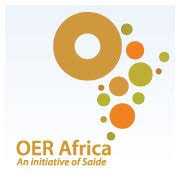 Source : OER Africa
Source : OER Africa
The spread of the COVID-19 virus and subsequent closure of many universities has severely disrupted academic progress across the globe. To assist lecturers with the implementation of emergency remote teaching (ERT), the Association of African Universities (AAU) and OER Africa is presenting a series of four webinars on ERT strategies.
You can access resources from the webinars below:
Webinar 1: Teaching effectively during the campus closure – Tips and tricks
Webinar 2: What to teach during campus closure
Webinar 3: How to know if learning is happening during campus closure
Webinar 4: Communicate effectively during campus closure
- Détails
- Écrit par : G. Puiségur
- Catégorie : Distance learning
- Clics : 791
 Source : TESSA
Source : TESSA
Teaching early reading in Africa with African Storybook is a course that introduces you to active teaching approaches that you can use to teach early reading. You will have the opportunity to practise new approaches in your classroom in a structured and supported way. This course should open up possibilities for your teaching and gives you the confidence to experiment with new approaches. It provides ideas and tools that will enable you to become more expert in the field of early reading.
Teaching early reading in Africa is developed by The Open University's Teacher Education in Sub-Saharan Africa (TESSA) programme in partnership with the South African Institute of Distance Education (SAIDE)'s African Storybook Initiative.
- Détails
- Écrit par : G. Puiségur
- Catégorie : Distance learning
- Clics : 795
Lire la suite : TESSA: Teaching early reading in Africa with African Storybook
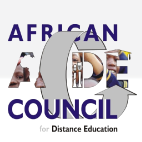 Source : ACDE
Source : ACDE
The African Council for Distance Education (ACDE) is a continental educational organization comprising African universities and other higher education institutions, which are committed to expanding access to quality education and training through Open and Distance Learning (ODL) including e-Learning. It is a unifying body of distance education providers and practitioners in Africa.
The mandate of the ACDE, as a unifying body of ODL providers in Africa, is primarily to promote research, policy and quality in open and distance learning to increase access to education and training in Africa. They do this by building capacity, fostering collaboration and partnership, and advocacy.
The vision of ACDE is to become a major player in the promotion and advocacy for ODL including e-Learning.
- Détails
- Écrit par : G. Puiségur
- Catégorie : Teach at a distance
- Clics : 844
Lire la suite : African Council for Distance Education (ACDE)
 Source : TESSA
Source : TESSA
TESSA (Teacher Education in Sub-Saharan Africa) provides collaboratively developed open educational resources (OERs) for teachers and teacher educators to support active learning methods and reflective practice.
Many Governments across the world have decided that teaching in schools should be ‘student-centred’ or ‘learner-centred’, and this is incorporated into policy documents. Teachers learn about the theory behind ‘student-centred learning’ in college, but the evidence is that they find it very difficult to put into practice. The TESSA materials help teachers to develop ‘student-centred’ approaches, and evidence from across the TESSA consortium shows that the TESSA materials make lessons more interesting, and in many places have led to improved attendance.
- Détails
- Écrit par : G. Puiségur
- Catégorie : Resource persons
- Clics : 871
Lire la suite : Teaching Lower Secondary Science : A Handbook for Teacher Educators
 Source : TESSA
Source : TESSA
TESSA (Teacher Education in Sub-Saharan Africa) provides collaboratively developed open educational resources (OERs) for teachers and teacher educators to support active learning methods and reflective practice.
School Experience Co-ordinators or lecturers visiting student teachers during their school experience are the primary audience for this Toolkit.
It contains resources that are beneficial to the experience of student teachers and aims to support them in using TESSA materials, which can encourage the use of active learning approaches.
- Détails
- Écrit par : G. Puiségur
- Catégorie : Resource persons
- Clics : 810
Lire la suite : School Experience Toolkit: Supporting School Experience Supervisors
This resource is an adaptation of a TESS-India OER : The elementary school leader as enabler, page 4
Qualities of a good leader (adapted from Gardner, 1997).
To find out, click on "Lire la suite..."
- Détails
- Écrit par : G. Puiségur
- Catégorie : School leaders
- Clics : 945
 Source: TESS-India
Source: TESS-India
This School Leadership OER (Open Educational Resource) is one of a set of 20 units from TESS-India designed to help school leaders develop their understanding and skills so that they can lead improvements in teaching and learning in their school.The units are essentially practical, with activities to be carried out in school with staff, students and others. They are based on research and academic study of effective schools. These resources are under Creative Commons Attribution-Share Alike licence and can be adapted to the contexts and needs of Sub Saharan African countries.
What this unit is about
There have been many changes in education policy in India in recent years, but one of the most significant is the shift in expectations on schools. The aspiration is that schools should become more autonomous and responsive to their local communities, and that school leaders should take greater responsibility for the quality of teaching and learning in their schools (Tyagi, 2011).The aim of the TESS-India Open Educational Resources (OERs) is to support school leaders that want to enable their schools to become dynamic learning environments with active students and interactive teachers. It can be a challenging task to bring about such practice where it does not already exist, although school leaders have a great deal of authority within their own school. This unit positions the school leader as an enabler – someone who uses their role to make things happen in their school. The TESS-India OERs provide a ‘toolkit’ to support you in this role. This first orientation unit aims to familiarise you in how to use the TESS-India School Leadership OERs for your own development. At the core of all these resources is the idea that learning is lifelong and continuous: for teachers to learn effectively, their school leaders also need to be learners.
- Détails
- Écrit par : G. Puiségur
- Catégorie : School leaders
- Clics : 944
 TESS-India aims to improve the classroom practices of elementary and secondary teachers in India through the provision of OERs to support school leaders and teachers in developing student-centred, participatory approaches.
TESS-India aims to improve the classroom practices of elementary and secondary teachers in India through the provision of OERs to support school leaders and teachers in developing student-centred, participatory approaches.
The 105 TESS-India subject OERs provide teachers with a companion to the school textbook in the subjects of language, science and maths. They offer activities for teachers to try out in their classrooms with their students, together with case studies showing how other teachers have taught the topic and linked resources to support teachers in developing their lesson plans and subject knowledge.
All TESS-India OERs have been collaboratively written by Indian and international authors to address Indian curriculum and contexts, and are available for online and print use. The OERs are available in several versions, appropriate for each participating Indian state and users are invited to adapt and localise the OERs further to meet local needs and contexts. These resources can easily been adapted to Sub Saharan African countries.
These resources are made available under a Creative Commons Attribution-Share Alike licence.
TESS-India is led by The Open University UK.
- Détails
- Écrit par : G. Puiségur
- Catégorie : School leaders
- Clics : 924
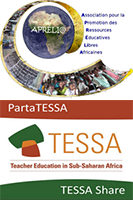 Source : Aprélia
Source : Aprélia
The booklet Accompanying teachers: coaching and mentoring is a free educational resource (OER) developed by a group of teacher educators to support school leaders who accompany their staff’s Professional Learning and Development (LPD) within their institution with a view of enhancing the conditions and quality of learning in the school.
It is an adaptation of the Aprélia booklet Accompagner les enseignant.e.s : coaching and mentorat which is available under a Creative Commons Attribution-Share Alike licence. It also draws on the work carried out by TESSA and Aprélia in French-speaking Sub-Saharan Africa, separately or jointly, as well as the resources resulting from this work.It belongs to a collection of booklets that relates to the key issue of improving learning through school-based professional co-development.
What this booklet is about
Most of us have at some point in our lives benefited from the generosity of a friend or family member who has listened to us as we have struggled to come to terms with a challenge or a problem.
In a professional context, such support and guidance is often referred to as coaching or mentoring, and in this booklet you will learn to distinguish between these two approaches. You will understand some of the skills and techniques associated with coaching and mentoring, and how to use them in your conversations with teachers, students and their parents and/or guardians.
- Détails
- Écrit par : G. Puiségur
- Catégorie : School leaders
- Clics : 1024
 Source : Aprélia
Source : Aprélia
The booklet Leading teachers’ professional development is a free educational resource (OER) developed by a group of teacher educators to support school leaders who accompany their staff’s Professional Learning and Development (LPD) within their institution with a view of enhancing the conditions and quality of learning in the school.
It is an adaptation of the Aprélia booklet Conduire le développement professionnel continu des enseignants which is available under a Creative Commons Attribution-Share Alike licence. It also draws on the work carried out by TESSA and Aprélia in French-speaking Sub-Saharan Africa, separately or jointly, as well as the resources resulting from this work.It belongs to a collection of booklets that relates to the key issue of improving learning through school-based professional co-development.
What this booklet is about
As a school leader your leadership role implicitly includes providing support to teachers to enable them improve their practice (including leading teacher professional development). This is not straightforward because there are certain constraints (including budgets) that are not within your control. However, there are opportunities for you to maximise teachers’ effectiveness through school-based support strategies, which is the focus of this booklet.
- Détails
- Écrit par : G. Puiségur
- Catégorie : School leaders
- Clics : 847
Lire la suite : Transforming teaching-learning process: Leading teachers’ professional development
- Transforming teaching-learning process: Supporting teachers to raise performance
- Inclusive education: EENET resources
- National Qualification for Transformative School Leadership and Management
- Secondary Education in Africa: Perspectives of African Youth
- Three innovative responses to COVID-19 that have removed barriers to learning for the most marginalised
- 2020 Global Education Monitoring (GEM) Report : Inclusion and Education
- Comment remplacer les punitions par l’empathie (et responsabiliser les enfants)
- Thursday, 23 July 2020 : Regional Launch of UNESCO’s 2020 Global Education Monitoring Report in West and Central Africa
- All teachers should be prepared to teach all students
- Impact of COVID-19 on Africa’s Education: Reflecting on Promising Interventions and Challenges, towards a New Normal
- Dyslexia and Literacy International : Free online courses for teachers
- Transforming teaching-learning process : TESSA-Apréli@ booklets for school leaders
- School Leadership : Transforming teaching-learning process and perspective on school-governance: leading the school development plan
- TESS-India School Leadership OER
- Teacher Education through School-based Support in India
- Examen critique des banques de REL
- Critically reviewing OER repositories
- Identifying useful OER
- Using digital resources at school without Internet access
- Promoting Inclusive Teacher Education Series
- Pathways for learning
- GENDER-INCLUSIVE LANGUAGE IN FRANCE: A MANUAL
- New Teacher’s Guide for Culture and Arts brings culture into the classrooms of Somalia
- Using and adapting OER to support teaching and learning
- World digital library
- Biology videos Ecosystem
- Using new technologies
- Working with Teachers: A Handbook for Teacher Educators
- Primary : Numeracy
- Primary : Science
- TESSA Secondary science units
- UNESCO in collaboration with ADEA and other partners launch an early childhood education (ECE) personnel survey related to COVID-19 in Sub-Saharan Africa
- Wiki for Kids – The Safe Wikipedia
- Wiktionary, the free dictionary
- School Leaders Communicate
- Helping Children Cope with Stress During COVID-19
- Online Resources for Parents to Keep Children Engaged with Remote Learning
- 9 Ways to School Kids from Home During Coronavirus
- Flexible Skills Development
- Blended Learning in the Classroom
Sous-catégories
School leaders Nombre d'articles : 14
Resource persons Nombre d'articles : 4
Teach at a distance Nombre d'articles : 3
Distance learning Nombre d'articles : 10
Teachers Nombre d'articles : 11
Families Nombre d'articles : 6
Inclusive Education Nombre d'articles : 16
Inclusive Education



